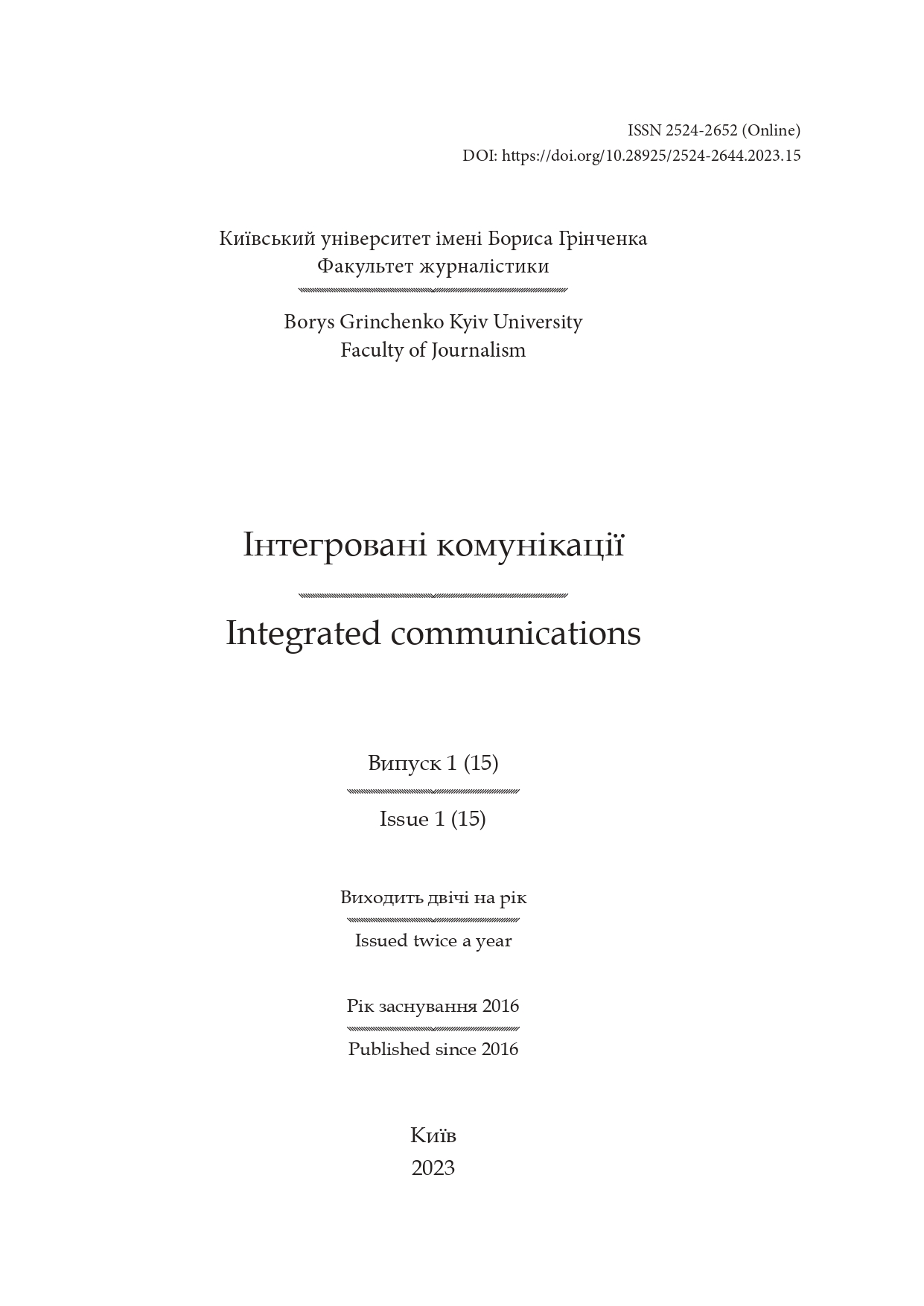Communicative transformations as a consequence of the development of modern digital internet technologies
Abstract
The transformation of communication processes characterizes modern society due to the expansion of digital and internet technologies, especially in the form of Web 2.0, the development of the post-information society, and post-culture. The communication media space increasingly incorporates networks, digital technologies alter the public sphere as a shared communication platform, the presence of digital identities grows, filter bubbles and echo chambers emerge, and phenomena such as cancel culture, post-truth, and post-journalism rise. Communicative transformations are primarily linked to the impact of new digital media – online media and artificial intelligence, raising questions about how new convergent technologies change the public sphere and, consequently, communicative strategies. It is essential to address a series of questions, including how online communication influences offline communication and how the unconscious and symbolic actor – the digital algorithm AI – shapes specific features of social interactions. The negative impact of artificial intelligence, the spread of pseudoscientific knowledge, and the difficulty of their verification also remain significant factors. The article addresses the emergence of a new social actor – artificial intelligence – and the issue of digital identities that may not fully coincide with a real person or only partially coincide.
The purpose of the article is to outline important communicative transformations caused by the development of modern digital media. The implementation of this purpose involves performing the following tasks: describing the main methodological approaches for analyzing the problem of communicative transformations, justifying their dependence on new digital media, and defining general communicative strategies through the emergence of new hybrid digital media. The article concludes that the development of digital technologies, especially AI, leads to communicative transformations in the public sphere, particularly through the formation of echo chambers, digital identities, virtualization, gamification, and blitz communication, shaping the processes of contemporary cultural changes.
Downloads
References
Borisov, E. (2010). Internet-komunikatsii: kulturnosemioticheskie formy i sotsial’nye tekhnologii / E. Borisov, N. Chernyakov // Naukovi zapysky Luhans’koho natsional’noho universytetu: zb. nauk. prats’. Luhans’k, 2010. Vypusk IX. Pred’yavlenie svitu v humanitarnykh dyskursakh XXI st. pp. 135–142.
Zrazhevs’ka, N. I. (2013). Novi media i novi formy komunikatsii v mediakulturi. Aktual’ni pytannia masovoi komunikatsii. Vypusk 14. pp. 70–75. URL: https://cutt.ly/ywFgG4mO.
Maklyuen, M. (2015). Halaktika Guttenberga: stanovlennia liudyny drukovanoi knyhy / M. Maklyuen; per. z anhl. A. A. Halushky, V. I. Postnikova. K.: Nika-Tsentr. 388 p.
Prokhorenko, Ye. Ya. (2008). Fenomen kiberkultury v informatsiino-tekhnolohichnomu vidtvorenni sotsiumu: avtoref. dys. …kand. sotsiol. nauk: 22.00.04 «Spetsial’ni ta haluzevi sotsiolohii» / Ye. Ya Prokhorenko. Kh., 2008. 23 р.
Toffler, E. Tretia khvylia (2000). Kyiv: Vydavnychiy dim «Vsesvit», 2000. 480 р.
Coulter Martin (2023). AI experts disown Musk-backed campaign citing their research. URL: https://cutt.ly/JwFgHA0q.
Habermas, J. (1991). The structural transformation of the public sphere: An inquiry into a category of bourgeois society (Studies in contemporary German social thought [New ed.]). Cambridge, MA: MIT Press.
Heimann Marc & Friederike Hübener Anne (2023). AI as social actor: a Lacanian investigation into social technology. URL: https://cutt.ly/ZwFgJAGw.
Jenkins Henry. (2006). Convergence Culture. NYLondon. P. 3.
Keen Andrew (2007). The Cult of the Amateur: How Today’s Internet Is Killing Our Culture. N.Y. 228 p.
Lubenow, Jorge Adriano (2012). The Public Sphere 50 Years Later: Public Sphere and Media Outlets in Juergen Habermas in Tribute to 50 Years of the Structural Transformation of the Public Sphere. URL: https://cutt.ly/9wFgKQR8.




